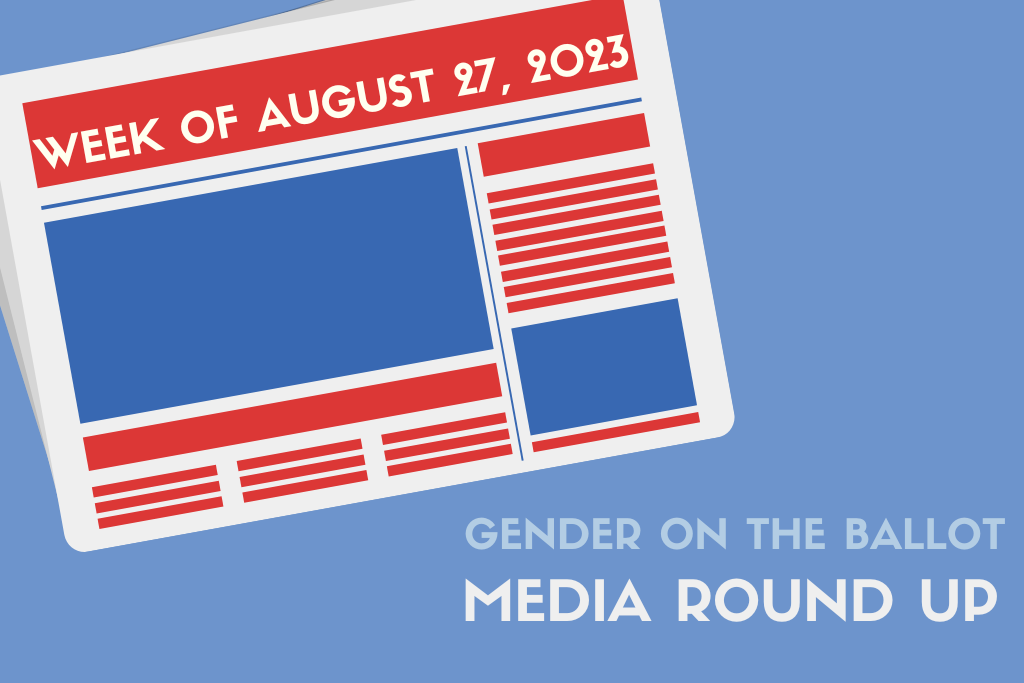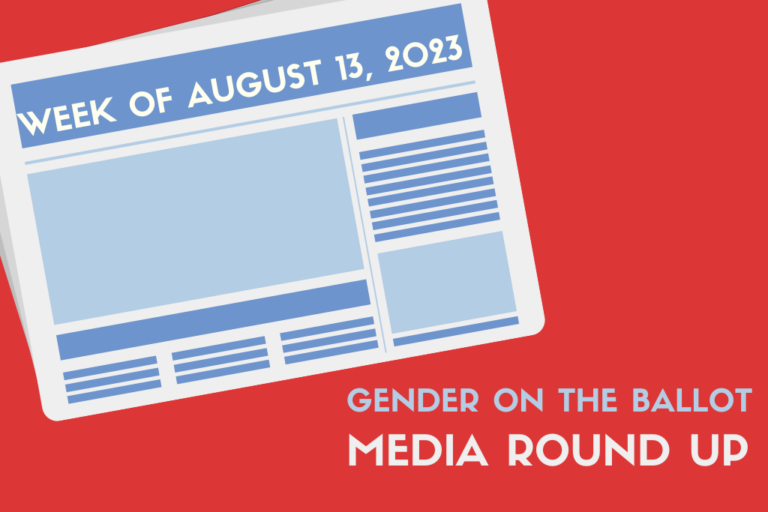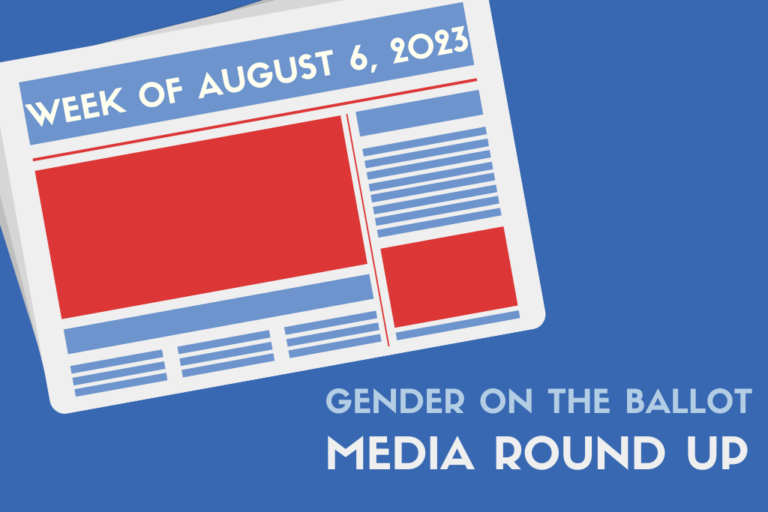Happy Friday! Welcome to our Media Round Up. Each week, we’re collecting and sharing…
Media Round-Up: Week of August 27, 2023

Happy Friday! Welcome to our Media Round Up. Each week, we’re collecting and sharing gender + politics stories. Here’s what caught our eye this week:
Haley performance leaves some in GOP seeing path to winning women
Julia Manchester, The Hill
Former South Carolina Governor Nikki Haley’s strong debate performance last Wednesday at the first Republican Debate is piquing interest among voters and GOP officials who are hoping to attract women back into the party. Haley is the only woman running for the Republican nomination, and her debate performance included critiquing Vivek Ramaswamy on foreign policy, dismissing former Vice President Mike Pence’s call for an abortion ban at the federal level, and taking aim at whether former President Trump could beat current President Joe Biden. While Haley gave a strong performance, what remains unclear is whether it is enough to break through in the Republican primary electorate currently dominated by Trump.
Read the full story here.
Michelle Obama’s Call for Equal Pay Puts Tennis Gender Inequality in Spotlight
Gillian Tan, Bloomberg
In the latest push by a prominent figure for progress in women’s sports, former US First Lady Michelle Obama advocated for equal pay for female athletes in tennis. On Monday night at the Arthur Ashe stadium, Obama honored Billie Jean King and implored sponsors and the US Tennis Association to facilitate equal prize money. Winners of the US Open first achieved equal pay at the 1973 US Open, and in 2023, singles champions will each earn $3 million. This conversation highlights a growing trend in the call for men and women athletes to receive equal prize money. In tennis, the Women’s Tennis Association outlined a pathway to equal prize money at certain tournaments by 2027, and by all in 2033.
Read the full story here.
Biden Looks for New Ways to Energize Black Voters
Erica L. Green and Zolan Kanno Youngs, New York Times
Vice President Kamala Harris has claimed that America is, “… looking at a full-on attack on our hard-fought, hard-won freedoms,” during a recent town hall with the Congressional Black Caucus. During his campaign in 2020, President Biden promised Black voters that he would deliver a sweeping “racial equity” agenda by way of a landmark federal voting rights bill, student loan relief, criminal justice reform, and more. Now in 2023, much of Biden’s agenda has been thwarted by Congress or the courts, and the White House is looking for new ways to re-energize the group that helped Biden secure his presidency. The White House is planning on doing this by describing the stakes of the election in stark terms, like what Vice President Harris did with the Congressional Black Caucus and earlier this summer in Boston at the NAACP National Convention. Biden is also asking voters to judge him on a series of achievements that benefit Black Americans, although they are not what was originally promised.
Read the full story here.
Justice Barrett says scrutiny welcomed and she’s developed a ‘thick skin’
Robert Barnes, Washington Post
On Monday, Justice Amy Coney Barrett said that public scrutiny of the Supreme Court is hardly new and should be welcomed. Barrett also said that she has developed a “thick” skin about criticism of her role as one of the newest justices. Barrett said, “With everything, there can be good and bad. With the court being in the news, to the extent that it engages people with the work of the court, and paying attention to the court and knowing what the courts do and what the Constitution has to say, that’s a positive development.” The downside of criticism comes when there’s a misperception about the court’s work or if there is the sense that it has “let the people down,” Barrett said.
Read the full story here.
How Medicare drug price negotiations stand to impact women
Sara Luterman, The 19th*
This week, President Biden’s administration announced an initiative allowing Medicare to negotiate prices for the first time, and women are one of the groups that stand to benefit the most. Created under the Inflation Reduction Act, this program aims to reduce the cost of some of the most expensive medications under Medicare. Women make up over half of Medicare recipients, and an even higher number of women rely on Medicare for their medication coverage. Due to cost, women are more likely to skip or delay taking medication.
Read the full story here.






